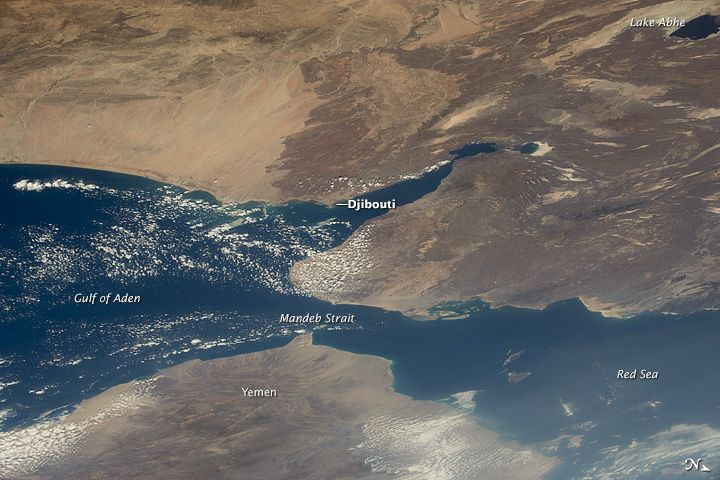Why Does China Have A Huge Military Base In Djibouti On The Horn Of Africa?

KEY POINTS
- The Djibouti base is one of the largest that China has built overseas
- The U.S. also has a military base in Djibouti
- Beijing views Djibouti as its gateway to the African continent
The Chinese Navy has constructed a huge and highly impenetrable fortress in Djibouti on the Horn of Africa that appears to be designed to receive large warships. Satellite images suggest the Chinese have recently expanded and upgraded this strategic base.
Asia Times reported that, based on satellite images, the Djibouti base is one of the largest that China has built overseas. The fortress even features such items as battlements, shooting ports and corner towers. The base also boasts vehicle checkpoints, perimeter fencing with razor wire, vehicle barriers and big concrete doors.
Forbes reported that the base could potentially receive aircraft carriers.
Construction of the base commenced in 2016 and was essentially finished by the spring of the following year at a cost of some $590 million.
Armored vehicles including ZBD-09 infantry fighting vehicles and ZTL-11 assault guns have reportedly been seen on the base. These vehicles are armed with automatic cannons, anti-tank missiles and large caliber guns.
The U.S. also has a military base in Djibouti – the Navy’s Expeditionary Base at Camp Lemonnier – but its defenses pale in comparison to its Chinese peer.
Asia Times speculated that China may be trying to avoid the fate of some U.S. military bases which have suffered attacks, including in Afghanistan and Iraq.
“Not every side of the base is defended equally, but there are substantial defenses on all sides,” Forbes wrote. “Even approaching from the water side of the base would require negotiating a series of security fences and guard positions. Inside the base itself there are a few more defensive positions.”
Forbes noted that the Djibouti base appears designed to thwart attacks by “insurgents and local low-tech threats.”
Peter Suciu wrote in National Interest that that Djibouti is strategically important as it lies near the Bab-el-Mandeb Strait, which separates the Gulf of Aden from the Red Sea, and protects the route to the Suez Canal.
Beijing views Djibouti as its gateway to the African continent.
Djibouti also hosts military bases belonging to France, Italy and Japan.
Interestingly, China does not refer to its Djibouti base as a "military base" – instead preferring to use phrases as "support facilities" or "logistical facilities."
“So far China's military involvement in the Horn of Africa has mainly consisted of anti-piracy missions, but it is believed it could support other key missions including intelligence collection, non-combat evacuation operations, peacekeeping operations support and counterterrorism,” Suciu wrote.
Under China's "One Belt, One Road" global infrastructure program, Djibouti is part of a group of military facilities that may eventually include bases in the Maldives and Tanzania.
"Djibouti is only the first step in what is likely to become a network of Chinese bases across the Indian Ocean," said David Brewster, a senior research fellow with the National Security College at the Australian National University, in 2018.
China has long sought to establish a dominant presence in the Indian Ocean. Beijing recently conducted military exercises near the coastal city of Karachi in Pakistan.
Jean-Pierre Cabestan, a professor of political science at Hong Kong Baptist University, wrote that China is moving slowly in the Horn of Africa, carefully seeking to avoid directly challenging the U.S. in the region.
Cabestan estimates the Djibouti base has no more than 2,000 Chinese military personnel, less than half the size of the U.S. deployment in the tiny country.
“By and large all the militaries present in Djibouti show restraint, underscoring a shared interest in peaceful coexistence,” Cabestan wrote. “Beijing has tried to minimize the importance of their decision to have a military base in Djibouti.”
© Copyright IBTimes 2025. All rights reserved.





















